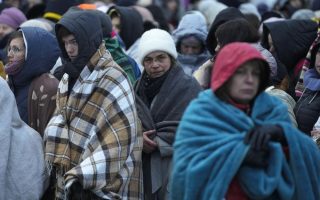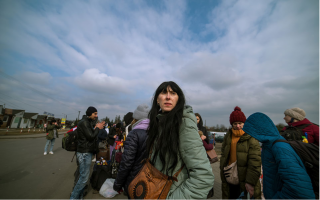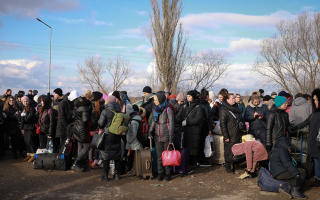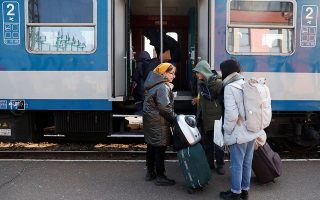In Greek migrant camp, Afghan woman finds strength in art
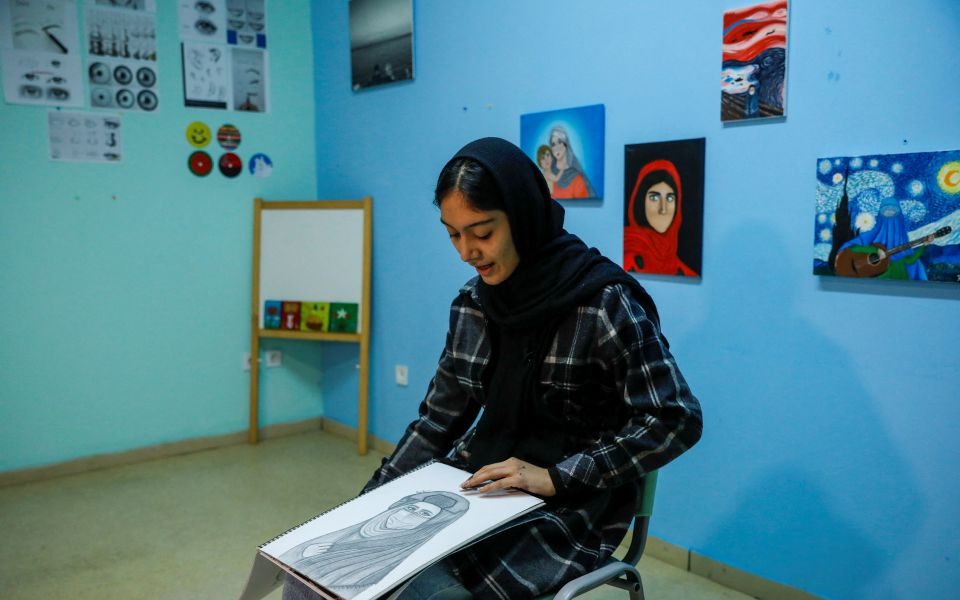
In a tiny classroom in a migrant camp in Greece, 18-year-old Roya Rasuli teaches a bustling group of young girls how to paint. For Rasuli, it’s also a lesson in women’s empowerment.
“What is your message for women, for girls?” Rasuli, who was born in Iran to Afghan refugees, asks her class.
“To be strong!” one of the girls shouts.
Hanging on the blue wall behind her is some of Rasuli’s own artwork, including a painting of the green-eyed “Afghan Girl,” whose iconic 1985 photo in National Geographic in a red headscarf became a symbol of Afghanistan’s wars. Rasuli painted her without a mouth.
“I wanted to show how women are in Afghanistan because they cannot speak, nobody listens to them and they don’t have rights,” Rasuli said, her fingers stained in black paint.
“I think this is the situation for a lot of women. Maybe in Syria, maybe in Iraq, maybe in Pakistan, maybe in some country in Europe.”
Rasuli had never picked up a paintbrush before arriving in Greece three years ago but she has since taught herself to draw.
She along with about 500 asylum-seekers – most of them Afghans – live in the Thiva camp, one of dozens set up across Greece since Europe’s 2015 migration crisis, when nearly a million refugees and migrants fleeing war and poverty in the Middle East and beyond arrived on the continent through Greece.
She leaves the camp at 5 a.m. for an hour-and-a-half long bus ride to the Athens School of Fine Arts for class, from where she hopes to receive a scholarship to study full-time.
“When I start to paint [it’s] like I’m traveling in another world, in another place that there is peace,” said Rasuli, who also taught herself English.
Another one of her paintings, in the style of Vincent van Gogh’s “Starry Night,” shows a woman in the traditional blue Afghan burqa playing the guitar.
“I wanted to show that they can be whatever they want … They are free to do anything, to believe their power and what they like to do. It’s good be themselves, it’s good to speak,” she said.
Rasuli, whose class in the Thiva camp in central Greece meets every week thanks to a UNICEF-funded program run by Greek charity Solidarity Now, says she hopes to inspire other young women to pursue their goals.
“I changed my life with my hopes and my dreams,” she said. “I will try my best to show them that they can do whatever they want, to be free.” [Reuters]
